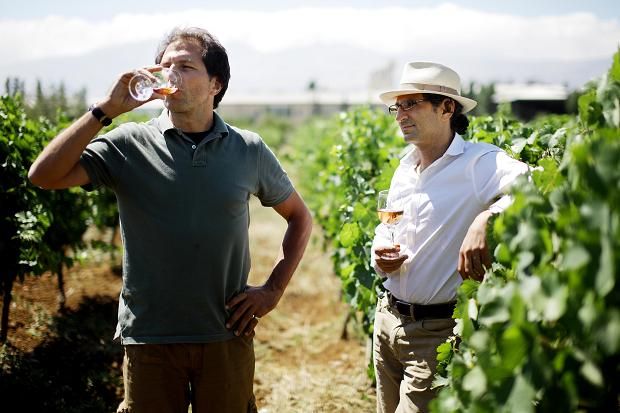
THE TIMES: Across Lebanon’s beautiful Bekaa Valley the vineyards shimmer in the heat of summer. The past decade has witnessed an extraordinary renaissance in the country’s 4,000-year-old winemaking tradition, with an expansion from four Lebanese winemakers in the 1980s to about 35 today.
At weekends Beirut residents drive out to enjoy food cooked in clay ovens next to the Massaya winery, run by two brothers determined to revive the family business in the shadow of Hezbollah’s guns. Amid tinkling fountains, banks of rosemary and trestle tables of grilled chicken and hoummos washed down with cinsault, syrah and cabernet sauvignon blend rosé, war is hard to imagine.
But the tap-tap of machinegun fire and muffled explosions echo in the distance. The training camps and bunkers of Hezbollah, the Shia militia that fought Israel to a standstill in 2006, lie to the north and south of the valley and in the hills along the Syrian border. Israeli spy drones buzz in the sky, their cameras fixed on Bekaa.
When Sami Ghosn returned from a decade living in Europe and America the moment seemed auspicious. The Oslo Accords appeared to herald a new era of peace.
His country, however, lay in ruins, the family estate overgrown and occupied by Palestinian squatters. With a Christian militia friend of his father’s, Sami and his brother, Ramzi, set about reclaiming the ancestral lands in lawless Lebanon. “I was sleeping with my gun,” he recalls.
The first years of production were limited to arak, a fiery aniseed spirit much loved locally. But in 1998 the brothers produced their first wine vintage. The Massaya vineyard is backed by a number of French winemakers and, in its first years, employed a French oenologist. “The challenge was very high and we needed the French support. That gave more substance to our venture,” Ramzi says.
Success came swiftly. The brothers’ 2000 vintage won a five-star accolade in the French viticultural bible Le Revue de Vin de France. It was one star more than the arch rival, Château Musar, the most famous and longstanding vineyard in Lebanon, could boast. Continue reading and comment >>> Tom Coghlan, Bekaa Valley | Monday, June 28, 2010